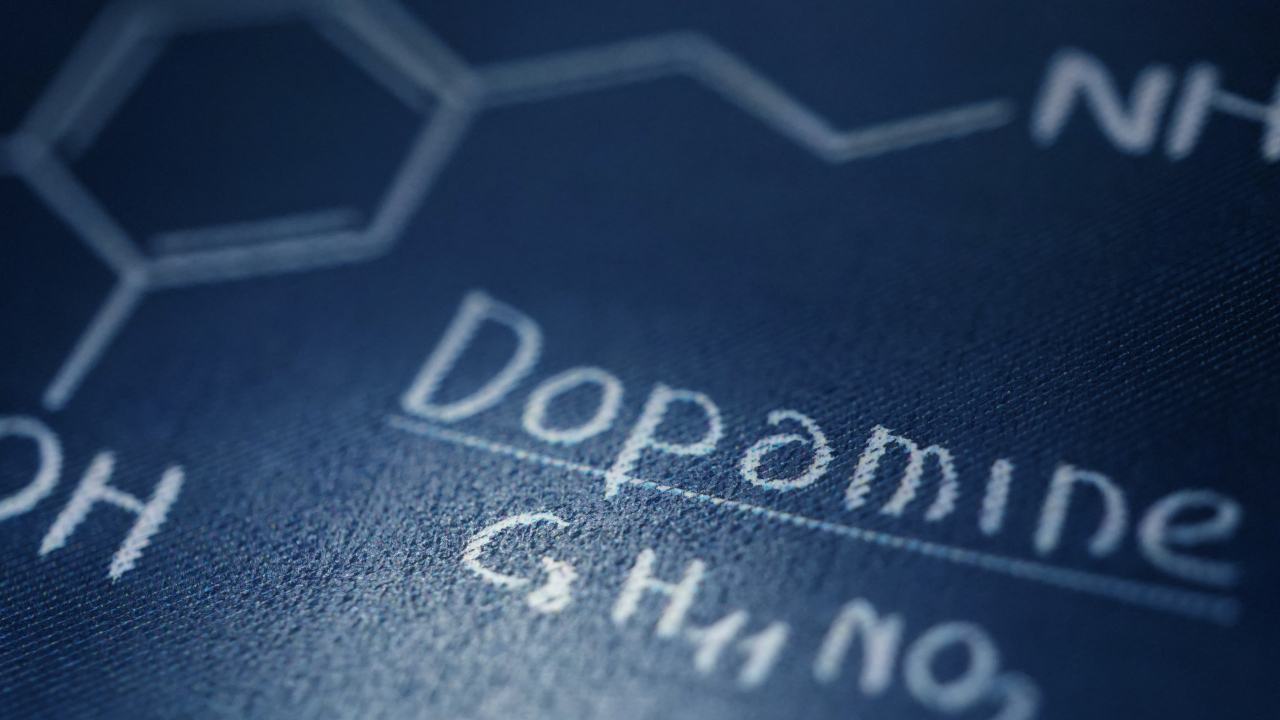The Dopamine Pathway: Building Resilience from Within
Sep 16, 2025
Why Dopamine Matters for Resilience
Why do some people bounce back quickly while others stay stuck? One hidden factor may be dopamine
Often called the "motivation molecule", dopamine is far more than that. It is a critical messenger in the brain’s resilience system, shaping how we adapt to stress, manage energy, and recover from setbacks
When dopamine is balanced, we feel motivated, focused, and capable. When it is depleted or overstimulated, resilience falters. Understanding dopamine is not about medicalising life - it is about recognising one of the hidden drivers of how we show up each day
- Dopamine fuels motivation, focus, and adaptability
- Lifestyle factors like sleep, stress, and nutrition influence dopamine balance
- Overstimulation (social media, sugar, caffeine) can blunt dopamine’s effect
- Small daily practices - movement, breath work, celebrating wins - support resilience
The Dopamine Pathway Simplified
Dopamine is a neurotransmitter - a chemical messenger that helps neurons talk to each other. It plays key roles in:
- Reward and reinforcement: learning what feels good or useful
- Attention and focus: sustaining effort on meaningful tasks
- Movement and coordination: fine-tuning how the body responds
- Mood regulation: shaping optimism, drive, and enjoyment
The dopamine pathway is like a delicate circuit. Too little, and tasks feel overwhelming. Too much, and the system can burn out - think of the "dopamine crash" after sugar highs, binge-scrolling, or constant novelty seeking
What’s Often Missed
Most conversations about dopamine stay surface-level. We hear "it is about willpower" or "just find more motivation". But resilience lives deeper than that
Here are some less obvious factors that shape dopamine balance:
- Nutrition
Dopamine is built from amino acids such as tyrosine, supported by vitamins and minerals like B6, magnesium, iron, and omega-3s. When diets are lacking, dopamine production may be affected - Sleep
Dopamine receptors reset during deep sleep. Poor sleep makes the brain less responsive to dopamine - leaving us less resilient the next day - Stress and trauma
Chronic stress raises cortisol, which can interfere with dopamine signalling. Past trauma may also disrupt how our reward circuits respond, leaving us less able to feel motivated or rewarded by positive actions - Overstimulation
Social media, sugar, caffeine, and constant novelty drive artificial spikes in dopamine. Over time, this dulls the brain’s sensitivity - so it takes more to feel the same reward
Dopamine and Resilience
Resilience is the capacity to adapt, recover, and keep moving forward - even when life does not go to plan. Dopamine is a quiet but powerful player in this process:
- Energy and drive: Balanced dopamine helps us keep showing up, even when circumstances are hard
- Adaptability: Dopamine circuits reinforce learning and problem-solving, vital in navigating change
- Sustaining habits: From exercise to meditation, dopamine supports positive behaviours that build resilience over time
- Hope and outlook: Low dopamine has been associated with reduced motivation and low mood. Balanced dopamine supports optimism - the belief that effort will pay off
Practical Steps to Support Dopamine Balance
You do not need a lab to influence your dopamine pathway. Everyday choices make a difference:
- Eat for your brain
Include protein-rich foods (chicken, fish, beans), leafy greens, nuts, and omega-3 sources (salmon, chia, flax). These provide the building blocks for dopamine - Prioritise sleep
Protect your sleep routine as if it were a meeting with your future self. Deep, restorative rest makes dopamine receptors more responsive - Move daily
Exercise may support healthy dopamine balance. Even a brisk 10-minute walk or dancing in your kitchen can help reset reward pathways - Practice breath work
Slow, intentional breathing calms the nervous system and may help regulate dopamine alongside other neurotransmitters - Digital hygiene
Reduce endless scrolling or dopamine "hits" from likes and notifications. Choose focused blocks of time online instead of constant grazing - Celebrate small wins
Dopamine rewards progress. Break big goals into small steps, and let your brain feel success along the way
Dopamine as a Resilience Ally
Dopamine is not just a "feel good" chemical - it is part of the foundation that helps us adapt, recover, and thrive. By nurturing dopamine balance through daily choices, we create the reserves to handle life’s inevitable ups and downs
Resilience is not about being unbreakable. It is about having the energy, focus, and adaptability to keep moving forward. And dopamine, when balanced, is one of the brain’s greatest allies
👉 Build resilience from the inside out - book a coaching session


